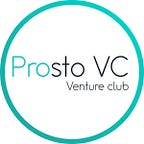As progressive technologies become more accessible as well as the abundance of information about technological entrepreneurship, almost everyone wants to try his own startup. VC`s and angel investors follow such projects to allocate money to a truly promising venture.
But some projects positioning themselves as startups are not exactly what they claim to be.
At this part of the story we will cover critical mistakes people make talking about startups and its’ definition.
Aleksandr Belov, co-founder of the international venture club Prosto VC, explains the differences between a startup and a classic business, and focuses on what venture investors actually expect to see.
Why do they pretend to be a startup?
When you’re a founder, you only pay attention to reasons why investors should give you resources. Often founders conduct a superficial analysis of projects that have received funding, find familiarity with their own project traits, and say, ‘We’re a startup! Give us the money.’ Unfortunately, these people often face rejection rather than funding.
And they try to present the project to a venture investor as a startup without a clear understanding of the idea of startups. This mistake happens very frequently so that it can be called systematic. It is partly due to the lack of accepted definitions of a startup, as there are many different case studies, descriptions, and stereotypes.
Here are several common mistakes when defining what a startup is.
- “A startup is a young company with a short history”
That’s definitely not true.
- Epic Games, founded in 1991, is still considered a startup.
- Stripe (2010) is often perceived as a startup, despite generating billions in revenue.
- Jeff Bezos consistently urges Amazon employees to remain a startup
Is a new coffee shop near my house a startup? No.
The time a business has been operating is irrelevant.
- “A startup is a company involved in technology development”
This is a controversial issue because startups are somehow connected to innovation, but innovation does not always mean own technology. More often, innovation lies in the business model. A company developing video games may not necessarily be a startup, but if it creates a breakthrough development and distribution model, it potentially qualifies. The title of a startup does not always depend on the status of being a ‘company that developed innovative technology.’
- “A startup is a rapidly growing company”
This is really close to the truth, but not always accurate. Imagine you have a flower shop, and after Saint Valentine’s Day you manage to open 15 new locations in a short period. The growth is rapid, but you haven’t become a startup.
A clear classical model in a familiar market — nothing groundbreaking. So, showing rapid growth is not enough to become a ‘startup.’
- “What is recognized as a startup in one country will definitely be recognized as a startup in others”
We often face this idea in practice. Once, a project came to us with supposedly innovative “meatballs” made by a sophisticated recipe. The project creators referred to a case in another country where a venture fund financed a similar business.
However, this project does not bring significant changes in the behavior of its customers. For them, the pattern remains the same — buying these meatballs at the same shop and from the same shelves. The task of such a business is to build a production line and ensure a good marketing campaign for an already existing target audience. The risks are no greater than in any other classical business in a competitive market.
Another example — I witnessed a project from India winning an innovators’ competition, proposing to transport fresh milk in regular refrigerator containers that we are used taking to the beach. In India, there is a big problem that 90% of milk is produced by households, but on the way to the closest factory, the milk can spoil because of the heat. Is this solution relevant for a market with a different production structure? The answer is clear.
So, what is a startup?
Let’s get to the exact definition
- A startup is a business oriented on exponential growth
I would like to clarify that in the real world, a startup is not measured by the duration of its operational activities. The time spent in the market doesn’t matter. A company can be an experienced player in its field, but if it has found a business model or technology to grow rapidly, then it is a startup.
When we take this characteristic into account, we can understand that many ‘innovative’ projects are not startups.
For example, the SPF sticks have flooded the market however have not changed consumer behavior.
- the manufacturers of this ‘innovative’ product use the same distribution and marketing channels
- the business model remains the same as for any other skincare product.
No matter how original the idea is, if the business does not demonstrate exponential growth and significant market shifts, it can’t be called a startup.
Follow us for more content and the 2nd part of the story where we will identify the clear definition of a startup providing relevant examples and expert opinion.
